Installation
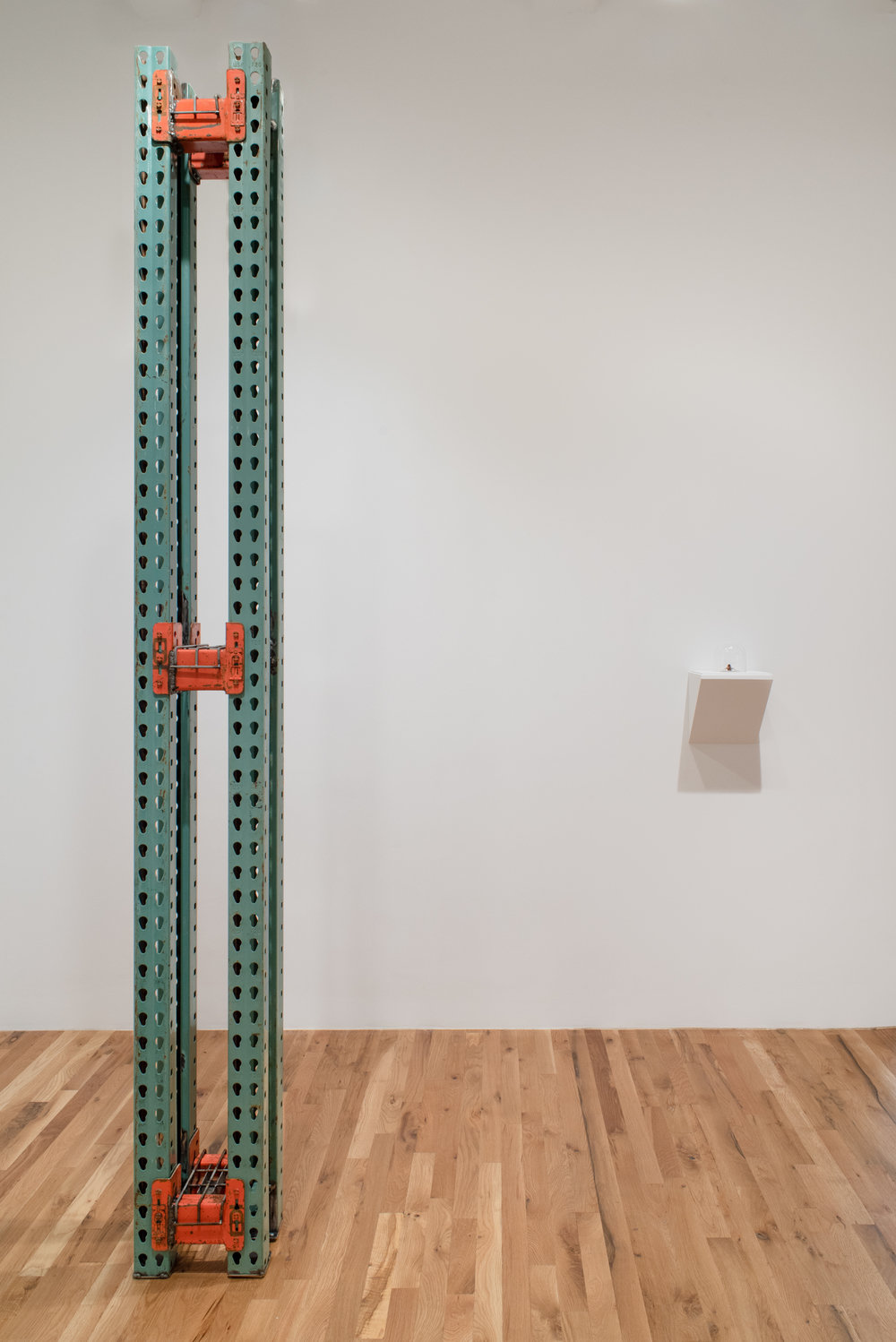
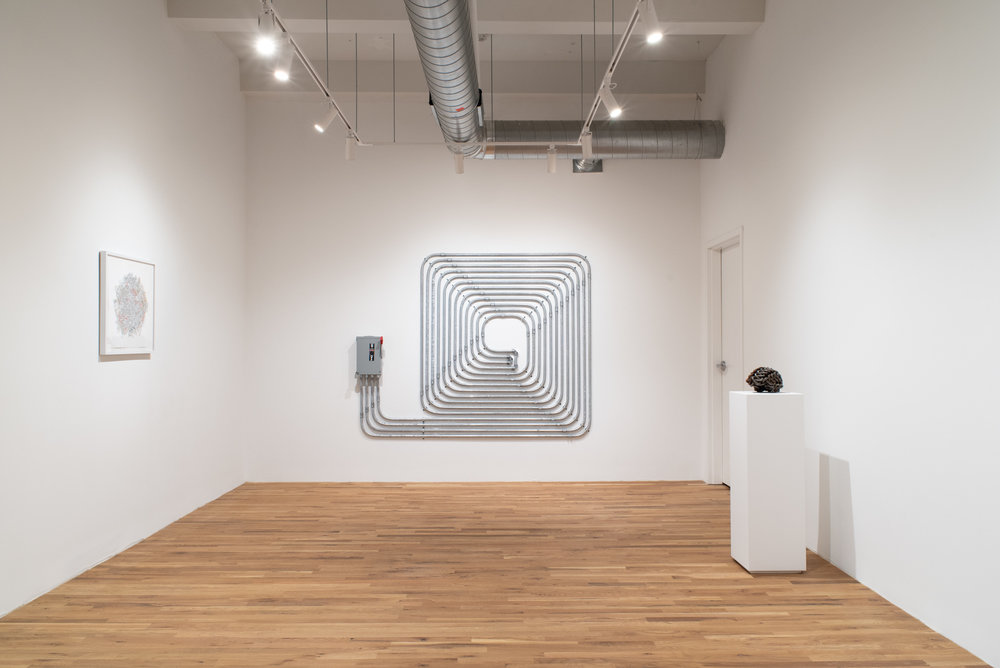
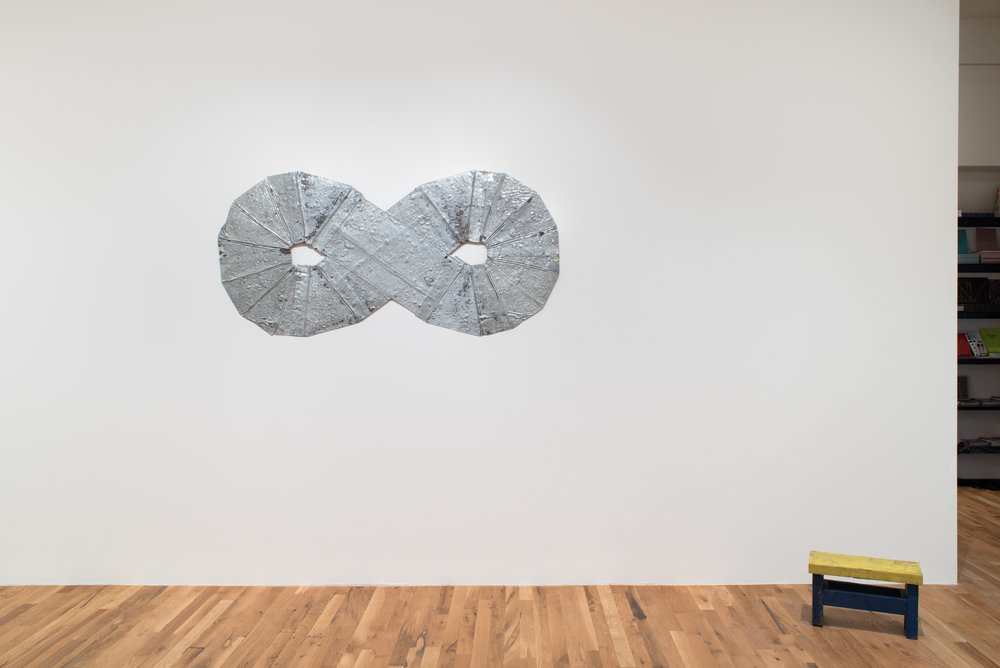
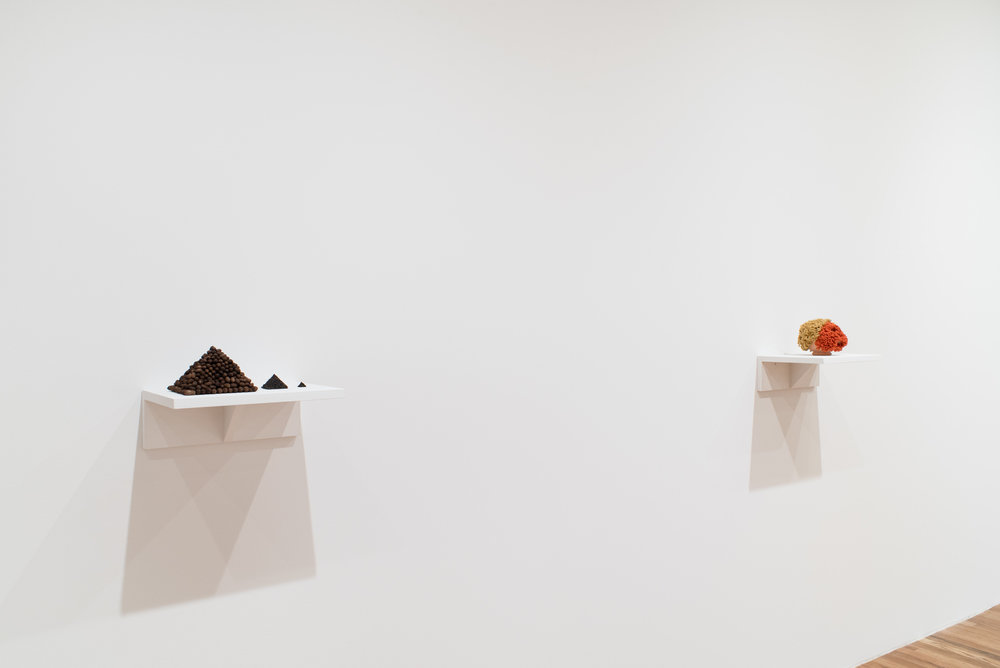
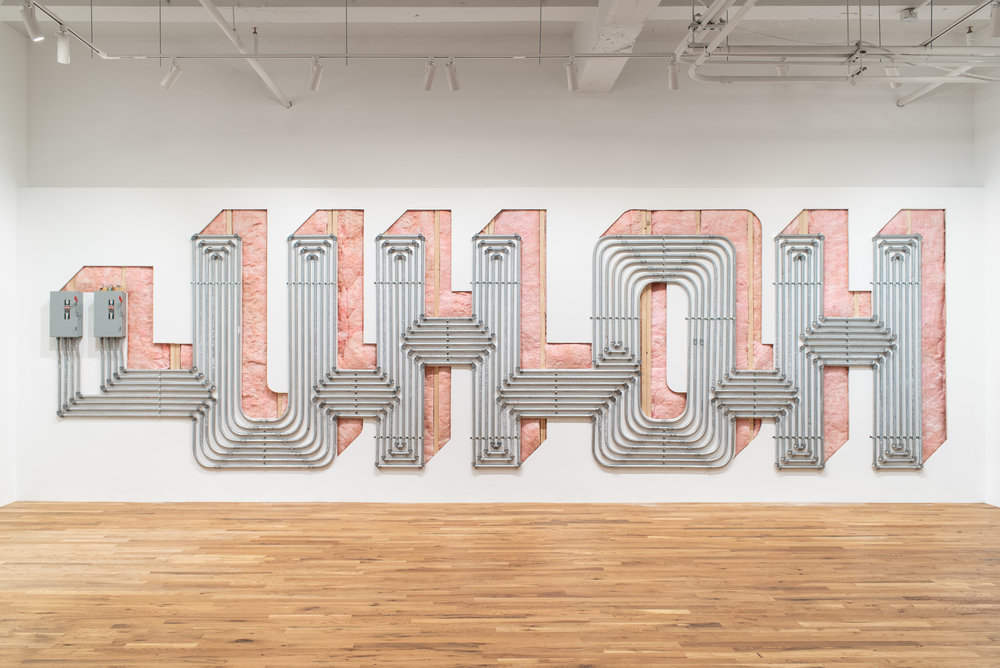
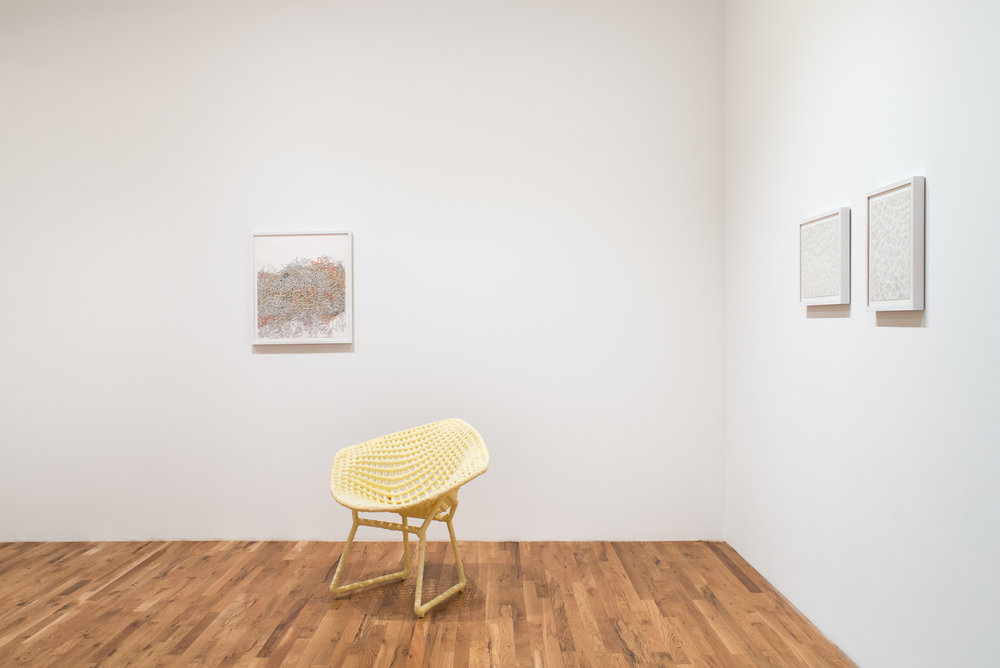
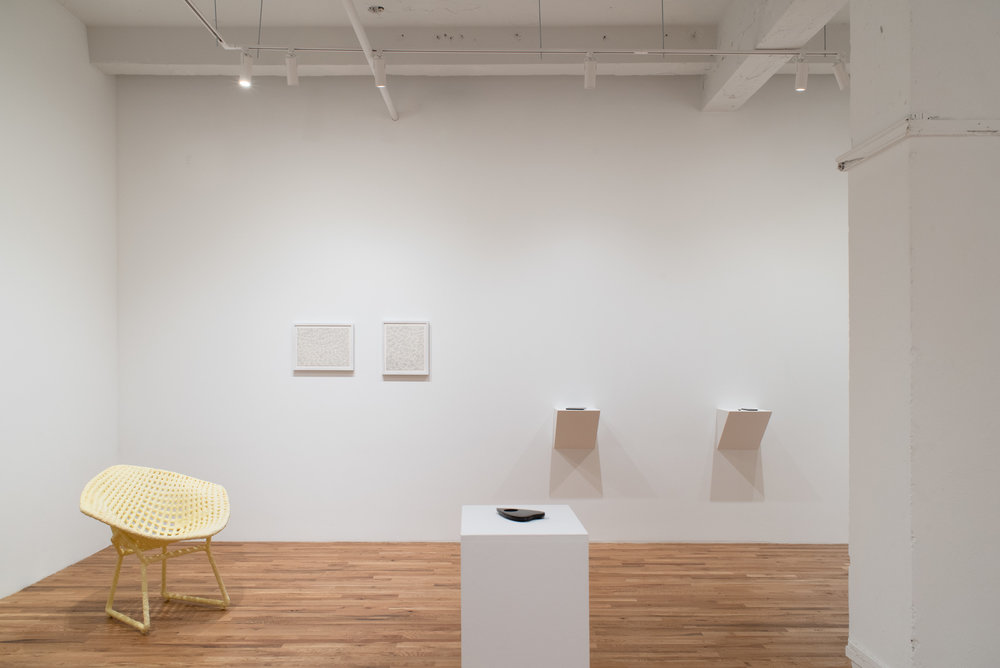
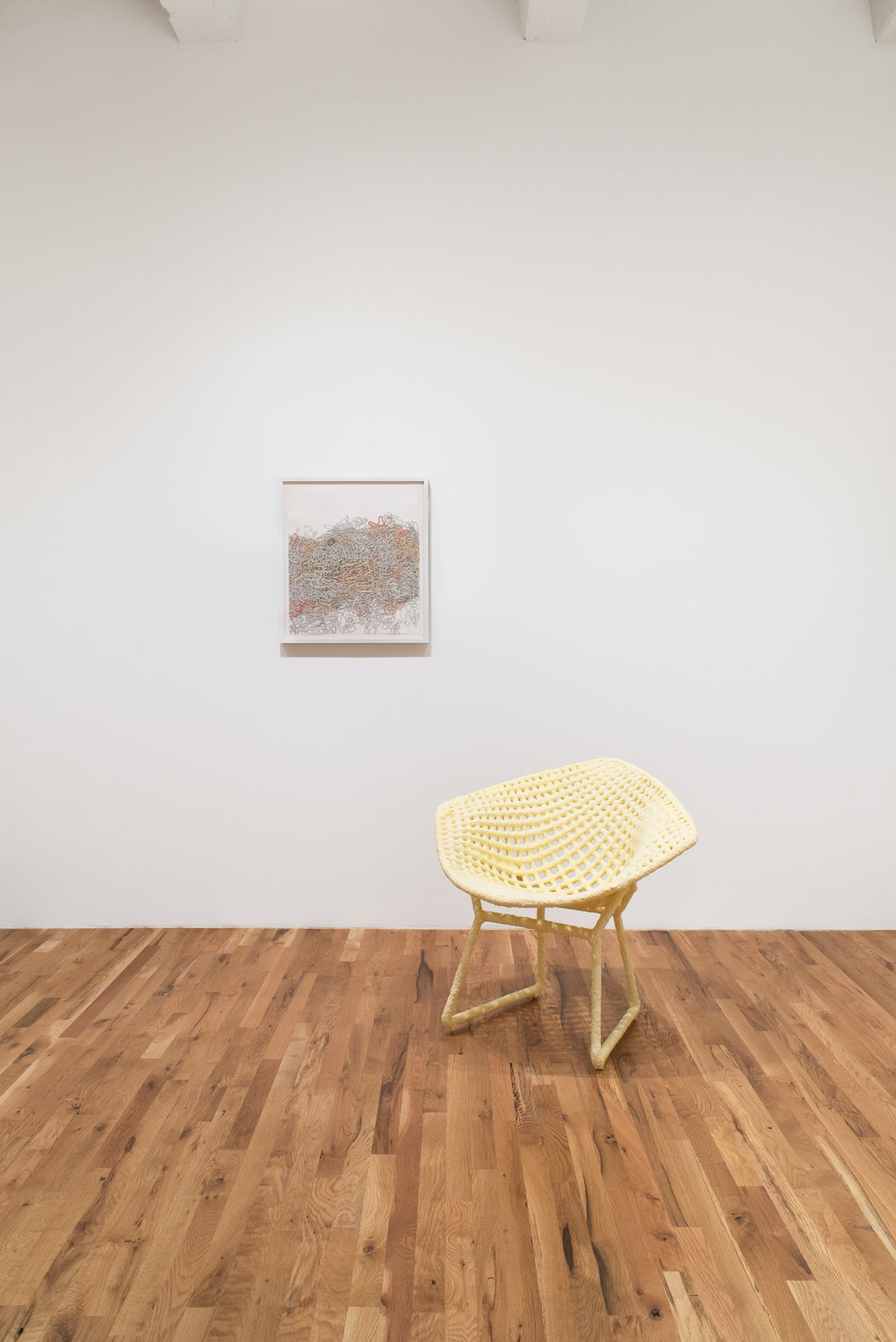
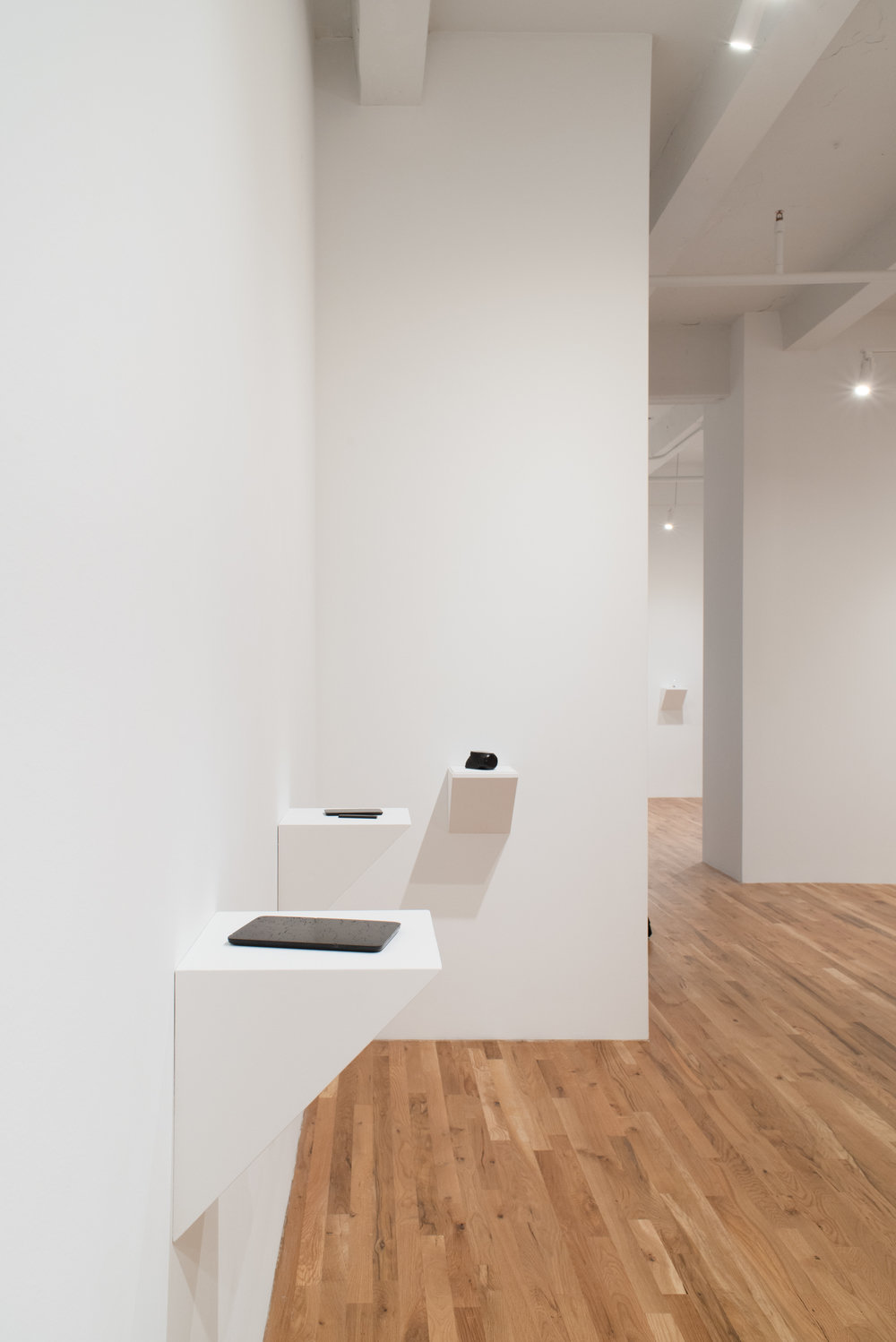
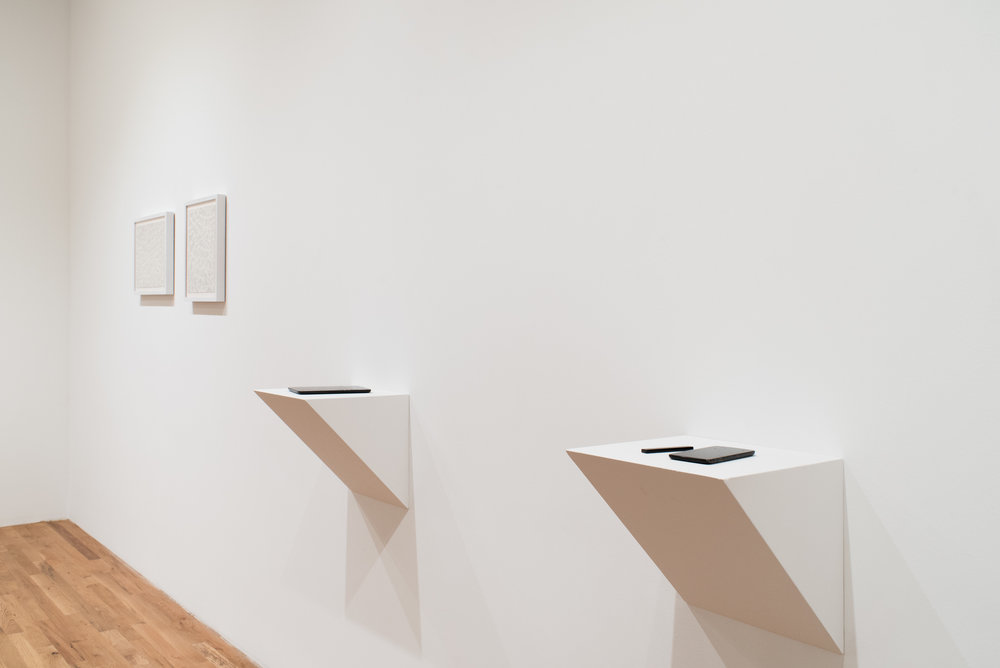
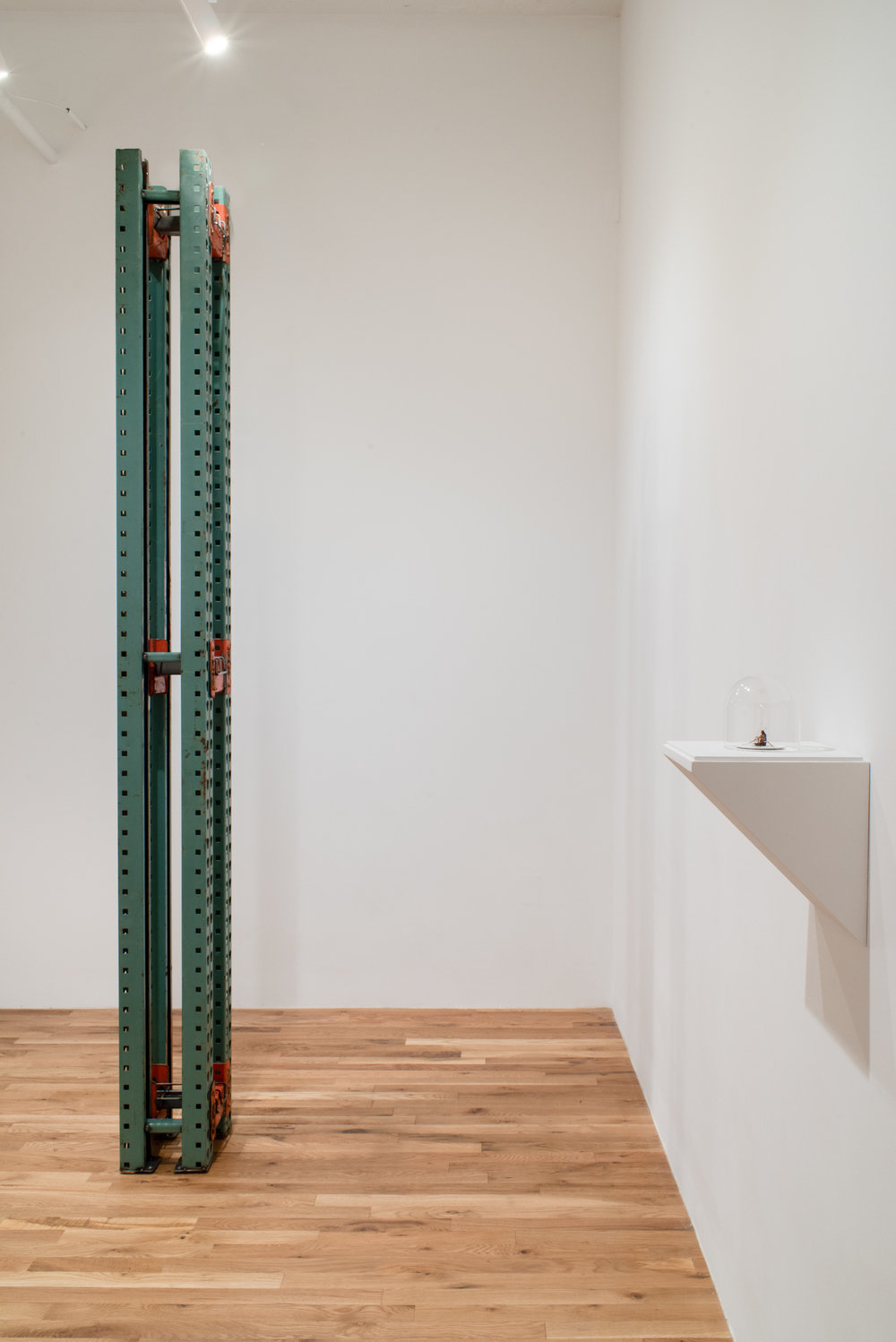
Sep 23 — Nov 06, 2021
Featuring work by: The Dufala Brothers
Opening: 12–7pm, Thursday, September 23
In Uh-Oh, their fourth solo exhibition at Fleisher/Ollman, the Dufala Brothers deploy their keen wit to explore humanity’s deepening plunge into the excesses of consumption and environmental disregard. A wall-based conduit sculpture makes rigid the spiraling vortex of our out-of-control electrical dependency in the age of energy-hogging cryptocurrency servers. An HVAC ductwork sculpture in the shape of an infinity symbol flattened by the tires of an excavator suggests an intervention on our energy dependency as if undertaken by Earth First! Delicate stain drawings that approximate dappled sunlight shining through crystal clear water use coal dust suspended in water as their media—beauty by way of our carbon imprint. Collage/drawing hybrids of paper cutout rubber bands piled upon drawn grounds echo the forms of light in the adjacent works and underscore how the most mundane items exponentially accrue in our kitchen junk drawers and eventually end up in landfills. The most ambitious work in the show occupies a 24-foot wall: a text conduit sculpture titled Uh-Oh, complete with an insulation-batting drop shadow, that transforms graffiti into three dimensions. The sculpture proclaims in a pithy phrase the kind of worry that is at once profound and lighthearted, the crux of the Dufala Brothers’ satirical sensibility.
Other small sculptures sprinkled throughout the space reflect on waste, our reliance on fossil fuels, and the environmental devastation caused by our dependence on technology. Micro pyramids of mouse, deer, and caterpillar excrement send up one of the zeniths of civilization, here rendered as piles of animal waste. Exquisitely crafted coal sculptures seemingly made by aliens take the form of smartphones. These are wondrous objects to behold, but ultimately useless as technology. Perhaps they have significance as power objects to a 21st century cargo cult? Their coal composition might also suggest that the phones in our pockets are harmful since the mining of the metals necessary for our desire to be connected have severe environmental consequences. A ouija board planchette fashioned from coal echoes that “uh-oh” feeling, and might point to unsettling possibilities: what will the future bring as temperatures rise, river banks flood, and our forests and homes burn? On a more positive note, there might be hope for our planet if we stop picking our butts—like the Dufala Brothers’ cockroach sculpture on view in the exhibition seems to be doing—and begin to deal with the ongoing mess we have created.
Issues of labor and class permeate the art of the Dufala Brothers materially and conceptually. The skills involved in conduit and HVAC duct installation are the domains of electricians and steamfitters, once trade union professions. Working class laborers staff waste management centers like Revolution Recovery, where Billy Dufala runs the artist residency program, RAIR, and where much of the materials for the Dufala Brothers' art is sourced. The risk of illness and death from the manufacturing of consumer goods, like the smartphones and tablets represented here, largely falls on underpaid labor. The Dufala Brothers' clever send-up of our consumer culture and its environmental degradations is one avenue in which to ponder our predicament and ruminate on ways to address mounting catastrophe.
The Dufala Brothers both graduated with certificates from the Pennsylvania Academy of the Fine Arts. They have had solo exhibitions at the West Collection, Oaks, PA; Delaware Center for Contemporary Arts, Wilmington, DE; Cantor Fitzgerald Gallery, Haverford College, Haverford, PA; Buffalo State College, Buffalo, NY; and Space 1026, Fleisher/Ollman, and Fleisher Art Memorial, all in Philadelphia. The Dufalas have been featured in many group exhibitions in the Philadelphia region in venues such as the Philadelphia Museum of Art, the Pennsylvania Academy of the Fine Arts, the Galleries at Moore College of Art, Space 1026, Slought Foundation, Globe Dye Works, Delaware County Community College, and Fleisher/Ollman. Elsewhere, they have shown at the Drawing Center, New York, NY; John Michael Kohler Arts Center, Sheboygan, WI; Naidre's, Brooklyn, NY; and The Corner at Whitman-Walker, Washington, DC. In 2014, the Dufala Brothers were resident artists in Philadelphia's Mantua neighborhood where they collaborated with local church and civic leaders in organizing a funeral for a home slated for demolition (project overseen by Temple Contemporary, Philadelphia). In 2009, they received the West Grand Prize. Their work is in the collections of the Philadelphia Museum of Art and the Pennsylvania Academy of the Fine Arts.










